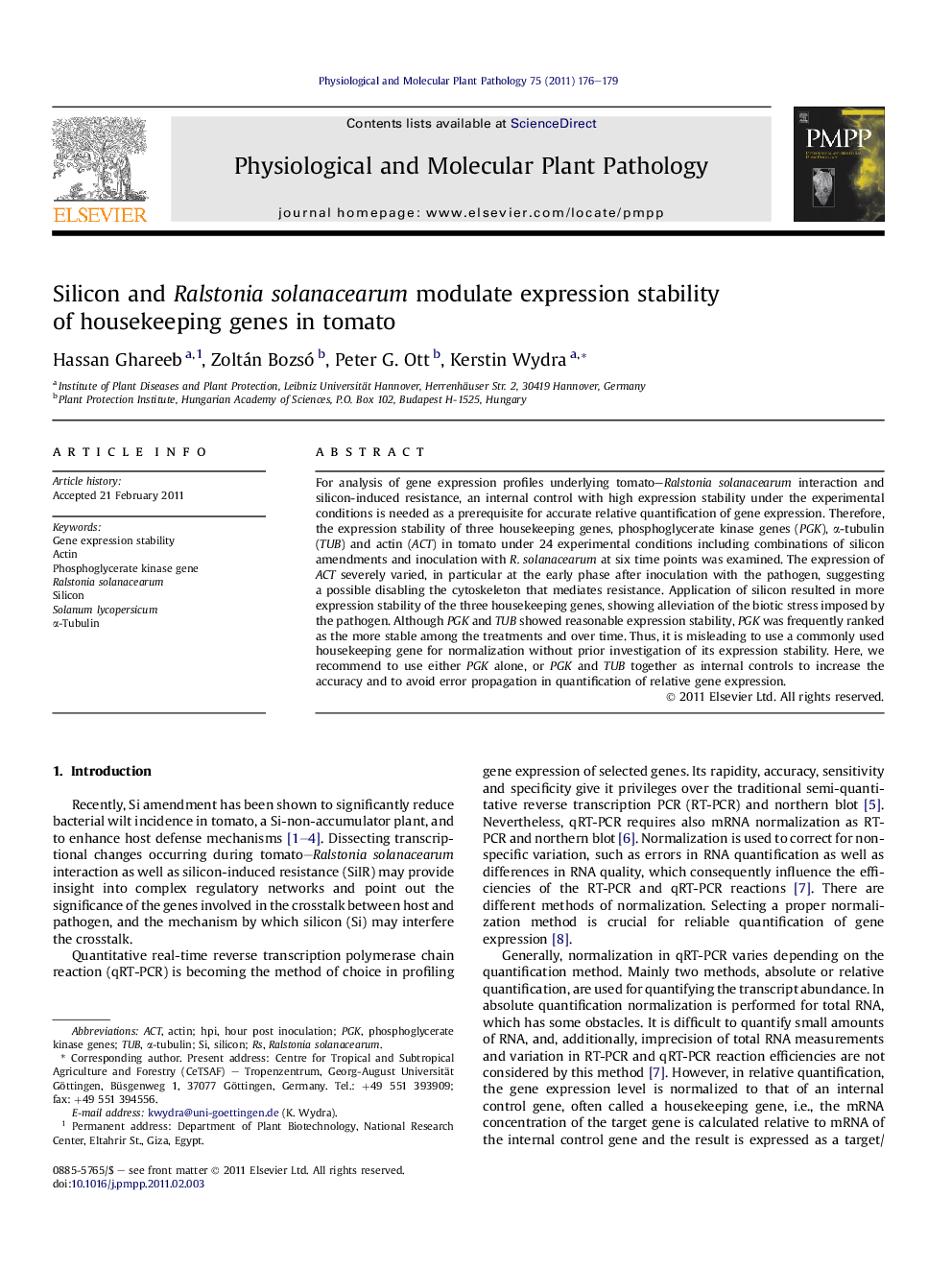| Article ID | Journal | Published Year | Pages | File Type |
|---|---|---|---|---|
| 2836584 | Physiological and Molecular Plant Pathology | 2011 | 4 Pages |
For analysis of gene expression profiles underlying tomato–Ralstonia solanacearum interaction and silicon-induced resistance, an internal control with high expression stability under the experimental conditions is needed as a prerequisite for accurate relative quantification of gene expression. Therefore, the expression stability of three housekeeping genes, phosphoglycerate kinase genes (PGK), α-tubulin (TUB) and actin (ACT) in tomato under 24 experimental conditions including combinations of silicon amendments and inoculation with R. solanacearum at six time points was examined. The expression of ACT severely varied, in particular at the early phase after inoculation with the pathogen, suggesting a possible disabling the cytoskeleton that mediates resistance. Application of silicon resulted in more expression stability of the three housekeeping genes, showing alleviation of the biotic stress imposed by the pathogen. Although PGK and TUB showed reasonable expression stability, PGK was frequently ranked as the more stable among the treatments and over time. Thus, it is misleading to use a commonly used housekeeping gene for normalization without prior investigation of its expression stability. Here, we recommend to use either PGK alone, or PGK and TUB together as internal controls to increase the accuracy and to avoid error propagation in quantification of relative gene expression.
► Here ACT is not reliable reference gene for mRNA normalization in quantification of gene expression. ► Using reference gene without validation of its expression stability may mislead interpreted results. ► PGK and TUB can be used as stable internal controls to study R. solanacearum-silicon interactions.
